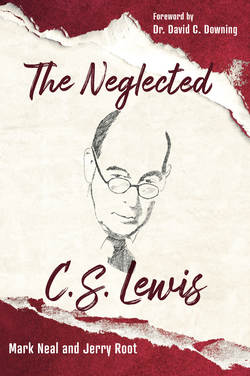Читать книгу The Neglected C. S. Lewis - Mark Neal - Страница 28
На сайте Литреса книга снята с продажи.
Tillyard’s Response
ОглавлениеIn any argument, to define one’s terms is wise. It removes ambiguity and the risk of equivocation. In responding to Lewis, Tillyard does this very thing. He defines his use of words such as “personal” and “personality” to add clarity to his side of the debate.65 Then Tillyard says that “Mr. Lewis implies that ‘personal’ as a critical term includes every accident however trivial connected with the author. No one can complain that he does so, but I should guess that not a few supporters of the ‘personal heresy’ would simply ignore such trivialities in their conception of personality. They would attach them to the sphere of literary gossip, not to that of criticism.”66
Here Tillyard does not represent Lewis fairly. He presents a straw man argument, trivializes Lewis’s point, and then dismisses it. Certainly, it is not always easy to accurately represent an opponent in a debate. As Lewis’s friend and fellow Inkling Charles Williams observed, “Not one mind in a thousand can be trusted to state accurately what its opponent says, much less what he thinks.”67 Tillyard continues, “Of course Mr. Lewis does not confine ‘personal’ to the trivial or accidental sense. He grants that it is possible through poetry to come into contact with a poet’s temperament in the most intimate way. The reader shares the poet’s consciousness.”68 Tillyard turns Lewis’s words around, suggesting that Lewis grants Tillyard’s point when this has not been the case at all.
Concerned that terms such as personal and personality ought to be properly defined, Tillyard then introduces the term “normal personality” and suggests a definition that can only be construed as ambiguous. He writes that “by personality or normal personality I do not mean practical or everyday personality, I mean rather some mental pattern which makes Keats Keats and not Mr. Smith or Mr. Jones.” What Tillyard means by practical everyday personality is not made clear so as to distinguish it either from “normal” or that “which makes Keats Keats.” He further muddies the waters by saying of Keats that his is “a remarkable personality.” And in a failed attempt to clarify further he adds that Keats is “someone whose personality impresses us.” By what standard does Tillyard judge that a personality is remarkable or impressive, or distinguishable from “normal”? Tillyard seeks to press his defense. He argues that an author’s style points to “the function of personality in poetry” and argues that “‘style’ readily suggests the mental pattern of the author, the personality realized in words.”69
Here it appears a point is scored for Tillyard’s side—until he presses the point too far and the argument unravels. He seeks to apply this as a defense against what Lewis wrote about translations, where multiple authors, styles, and personalities may be represented in the text. Tillyard compares translators to artists whose paintings or sculptures are attempts to “translate” some original to canvas or marble. He suggests something of the author’s personality is not merely preserved, but is the only thing worth critical analysis. At this point, the reader begins to think Tillyard would be better served if he yielded rather than continued to defend what looks to be indefensible. Literary style does distinguish one author or artist from another. This is a fact in evidence when comparing texts or works of art with others. Tillyard’s case is not made because the work of art is not merely reflective of the personality of the artist. Tillyard seeks to make a definitive statement—the text is the expression of the writer’s personality—rather than an indefinite one, i.e., that a
